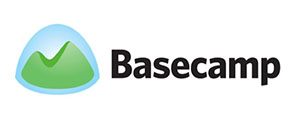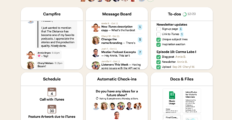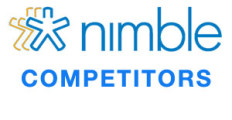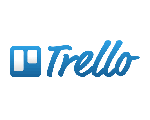 There are dozens of outstanding project management solutions out there, with Basecamp being among the most popular tools. Project management software has been around for quite some time now and it can have other functions aside from just those designed for managing projects. Modern project management tools can carry out cost control, scheduling, budget management, collaboration, resource allocation, communication, documentation or administration, and quality management. These features are meant to handle various aspects and complexities of bigger projects and help reduce costs.
There are dozens of outstanding project management solutions out there, with Basecamp being among the most popular tools. Project management software has been around for quite some time now and it can have other functions aside from just those designed for managing projects. Modern project management tools can carry out cost control, scheduling, budget management, collaboration, resource allocation, communication, documentation or administration, and quality management. These features are meant to handle various aspects and complexities of bigger projects and help reduce costs.
With its main headquarters in Chicago, Illinois and offices in 26 cities worldwide, Basecamp is a well-known firms in the field of business and project management software development. Privately-owned, this company actually started 15 years ago and was then called 37signals. The platform was renamed Basecamp project management software and subsequently brought to the market in the year 2004.
However, there are quite a few Basecamp competitors that also offer top project management solutions and may be a better alternative for your company. In this article you’ll find a detailed overview of Basecamp and five of its competitors, including their advantages and disadvantages, pricing, most distinctive features, and other key factors that may affect your buying decision.
Overview of Basecamp
Pricing: starts at $20 per month

Basecamp offers a comprehensible solution across various devices
Basecamp is a hugely popular and largely ubiquitous project management solution used by many web agencies, enabling them to manage projects as well as collaborate with clients. Why is it popular? The key features of this tool that contributed to that popularity are:
- Clean design – Basecamp is designed by web designers for web designers
- Simple functionality – Basecamp does not try to do everything. The tool just does what it promised to do but it does it well.
- Right place, right time – Basecamp achieved critical momentum and lots of good feedback from users and critics.
With Basecamp, you can easily share your ideas with others. It has a discussion area where you can ask questions or share your opinion with others. With this discussion area, you can keep all the information together, which allows you to streamline the communication within Basecamp.
Basecamp also allows you to get Daily Recap emails, keeping you updated about the status and progress of your projects and tasks. If you need another task to be added within the tool, you can easily do it right from your email and send the task to Basecamp. Then, it will appear in the system for your team to see. In addition, you can inform everyone about progress updates on any project or task you are doing. The tool also allows you to contribute to various discussions using your email and inform others of the topic so they can quickly respond, even if they are not logged in.
While Basecamp indeed has a lot of amazing features, there have been some criticisms of it as well. For instance, its task management still has a lot to be improved. There is no way to make a task dependent upon another in Basecamp, something which could be a problem when you are trying to schedule upcoming work. When adding a task, you are likewise unable to indicate its estimated duration or delegate the task to various users. Because of these flaws, Basecamp may not be the ideal project management solution especially if your projects have strict deadlines to meet. Basecamp also has no time management tools and Gantt timeline charts. It also does not provide you with any reporting tools, making data analysis and arriving at informed decisions more difficult. Finally, it does not support milestones, so there is no method to monitor these major events from within your system. To be fair though, Basecamp’s design is easy to use and understand, so many companies may be happy with what they get with that sofware.
If you’d like to learn more about this tool feel free to read our detailed review of Basecamp. There are at least several equally good or even better project management solutions that may work better for your company.
Top 5 Basecamp Competitors
1. Wrike
Pricing: free for teams of up to 5 users; premium pricing starts at $10 per month

If there is a project management solution on this list that astounds both users and review sites, it is Wrike. It is one of the best project management solutions available in the market. If you’d like to get more information about why this software is so amazing you can read our detailed review of Wrike. Currently, Wrike is definitely the leading project management solution in our SaaS & B2B directory. If that’s not enough to convince you, you can always test a free version of Wrike on your own. All you have to do is start Wrike free trial.
Wrike is a project management solution that can give your business real-time project insights. It was created with the objective of making your business operations faster and more transparent. Wrike can serve as your business project hub, enabling users to discuss tasks and ideas quickly, track schedules, and securely store files.
With Wrike, users can organize projects and tasks within a single workspace. They can also easily access any uploaded files. You can delegate tasks, collaborate in discussions or track schedules using interactive Gantt charts. It also has built-in analytics tools that can give you a fast visual update on the progress of your projects.
Wrike is ideal for teams and companies of all sizes, from single entrepreneurs and small companies to Fortune 500 companies. Tech companies, marketing departments, social media companies, and any other firm that requires project management solutions can benefit from using this solution. Google, Adobe, HTC, Electronic Arts, and PayPal are among Wrike’s major clients.
If you want to learn more about how this sofware works you can find a lot of useful information in our detailed review of Wrike.
2. Asana
Pricing: starts at $21 per month

An overview of Asana interface
Asana is another of the significant Basecamp competitors. It’s a project and task management solution that will enable your team to communicate and collaborate more efficiently. You can use Asana to create projects and tasks as well as add employees to your projects/tasks, collaborate on projects, or include employees’ profiles in your comments, ensuring everyone is in on the same page.
Asana takes away the need to use email in discussing your projects. With their app you will be able to follow and search all public tasks. Asana also allows merging tasks with just a single click, seting up workflow, handling tasks according to set priorities, getting updates and completion notifications, setting due dates, adding followers to a task, and many more.
Apart from its basic task management features, Asana offers numerous integrations with popular third-party software and services.
Asana is a good choice for companies and teams of various sizes and shapes that need crucial teamwork. It is primarily used in healthcare industries, designing teams, technology firms, and marketing teams. Dropbox, Disqus, Foursquare, and Virginia Tech are among the major clients of Asana.
If you’d like to find out more about this app you may want to read our detailed review of Asana.
3. JIRA
Pricing: starts at $10 per month for 10 users

A brief look at Jira interface
Next competitor that fights with Basecamp for a chunk of the project management software market is JIRA. This tool was designed to help you capture, assign, and set priorities to your work. It enables you to manage the project development process making sure all things will be covered, from start to launch. JIRA has a simple and intuitive interface that enables better collaboration with your teammates and allows you to effectively get the job done.
JIRA’s cloud-hosted version offers the following benefits:
- Instant set-up
- Distributed collaboration
- Bundled add-ons and remote integrations
- Subscription pricing: month-to-month
JIRA’s on-premise version offers the following benefits:
- Perpetual license: one-time purchase
- Extreme customization
- Complete application control
- Add-ons are available from the tool’s Atlassian Marketplace
You can find a more comprehensive look at this software in our detailed review of JIRA.
4. MindManager
Pricing: starts at $349 for a single license

The app offers powerful mind mapping capabilities
MindManager, a powerful mind mapping software solution, comes with functionalities that allow users to plan, discuss, share, and manage projects with just a single software solution. Companies can start from mere ideas and work from concept to implementation with this product, which also boasts its integration with Microsoft Office.
MindManager’s mind mapping tools and features allow you to turn ideas to reality. Companies using MindManager become more proficient in brainstorming, planning, sharing, and managing projects with speed and ease without losing focus on the bigger picture. Among the top benefits of MindManager are:
- Various aspects of your product will become detailed and visible
- You can improve productivity by enabling users to present information and concepts and organize ideas using visual mind maps
- The app will let you make better conclusions and decisions
- You can improve understanding as well as retention between and among team members and departments
If you want to read more about its advantages and disadvantages then our detailed review of MindManager is there to help.
5. Podio
Pricing: starts at $9 per employee per month

Here’s Podio interface in action
Podio allows you to work as a well organized business team and at least 400,000 teams around the world use this tool. Podio is completely customizable to match your unique project needs. Its social activity streams allow you to show status updates, comments, and likes, making this tool fully social. Likewise, Podio gives you complete flexibility to define content structure and create reports and overviews.
What is more communication in Podio is closely tracked and organized. Podio puts your conversations in a single place for easy monitoring and tracking. Updates, comments, as well as changes are done in real time, making sure that every project is updated. The tool is available for iOS and Android enabling you to access your project plans even if you are mobile.
Podio is best for small and medium businesses, nonprofits, freelancers, public administrations, and professional services.
A more thorough analysis of its pros and cons is available in our detailed review of Podio.




























Thanks for the informative overview of this product category; perfect for putting myself through a crash course in SaaS team management options. 2 minor points of feedback:
1) The article lacks any indication of when it was written. In this highly volatile field, it matters a great deal if the overview was written this month, this year, 18 months ago. As a newcomer to this space, I can't tell if I am reading about the current versions of these products or not. Some of the screen shots have 2015 in them, but I don't think the article is THAT old. I would have more trust for what I learned here if I could verify that it is current.
2) The article appears to have an assumed bias that users will be using these products for deadline-driven projects such as developing software releases or launching a new website. These products can also be used for ongoing team management, and/or case-management where there is not necessarily a common over-arching deadline, but rather the indefinite care of a patient, for example.
Thank you.
Leave a comment!